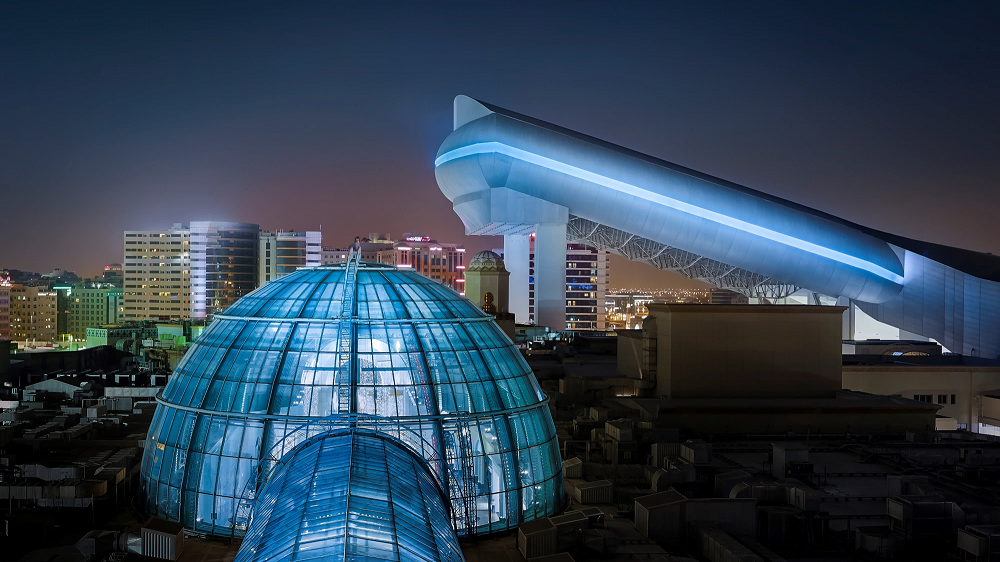 As part of its company-wide sustainability strategy, Dare Today, Change Tomorrow, Majid Al Futtaim – the shopping mall, communities, retail and leisure pioneer across the Middle East, Africa and Asia – is bolstering its sustainable business commitment by launching its Circular Economy Strategy. The new strategy, which sets out a roadmap towards achieving circularity across the group’s operations in the next ten years, was unveiled during a high-level virtual event on circular economy hosted by the UAE Ministry of Economy and the Canadian Business Council on 17 December.
As part of its company-wide sustainability strategy, Dare Today, Change Tomorrow, Majid Al Futtaim – the shopping mall, communities, retail and leisure pioneer across the Middle East, Africa and Asia – is bolstering its sustainable business commitment by launching its Circular Economy Strategy. The new strategy, which sets out a roadmap towards achieving circularity across the group’s operations in the next ten years, was unveiled during a high-level virtual event on circular economy hosted by the UAE Ministry of Economy and the Canadian Business Council on 17 December.
Majid Al Futtaim aims to achieve its ambitious circular economy vision in two ways: making crucial changes to the entire eco-system, and integrating lifecycle thinking into all business planning and decision-making. The 10-year framework sets clear targets around keeping materials and products in use and outlines how this will be achieved through utilising durable alternatives and achieving the highest possible recycling rates. The strategy reiterates the company’s long-term commitment to renewable energy solutions and becoming net positive in carbon and water by 2040.
Under the new roadmap towards circularity, all Majid Al Futtaim operating companies will embed circular economy principles into business operations to minimise harmful impacts on the environment and generate new revenue streams. Based on five pillars, the strategy addresses key areas of impact and aims to leverage the relationships between key stakeholders. The five pillars of the new circular economy strategy are: Resource Mapping, Maximising Value, Closed-loop Supplies, Circular Lifestyles, and Collaborate to Accelerate.
The strategy also addresses two of the most crucial waste streams: food and construction. It maps out an operating model that seeks to source food grown regeneratively, reducing food waste to the absolute minimum, and designing and marketing healthier food products. The plan prioritises the reuse of materials and maximising the value of construction waste from the design stage throughout the lifecycle of the asset.
Ibrahim Al-Zu’bi, Chief Sustainability Officer, Majid Al Futtaim – Holding, said: “As pioneers of sustainability in this region and building on our promise to rethink how we use resources, the launch of our circular economy strategy is a significant milestone in our sustainability journey. By 2030, it is our ambition that all operating companies have circularity at the core of their operations, actively engaging with our suppliers, customers and the wider business and government communities, to bring about systemic change and impact.”
On a global scale, the rise of the circular economy is leading business, governments, and citizens to increasingly recognise the challenges caused by our current approach to production and consumption. This imperative is emphasised by the more than 92 billion tons of materials extracted and processed in 2019, contributing to about half of global CO2 emissions and resulting in waste materials taking an increasingly unsustainable toll on the environment and human health. Meanwhile, the circular economy, which promotes the reduction and elimination of waste, offers a new solution that can yield as much as $4.5 trillion in economic benefits by 2030. Achieving a transition towards a fully circular economy requires unprecedented collaboration given that today, approximately only 8.6 per cent of the world is circular.[1]
Majid Al Futtaim has a long history of working towards the effective and efficient management of resources. In 2018, as a part of the company-wide sustainability strategy, Dare Today, Change Tomorrow, Majid Al Futtaim established three focus areas: Transforming Lives, Rethinking Resources, and Empowering Our People. As part of the Rethinking Resources focus area of the company-wide sustainability strategy, Majid Al Futtaim committed to embedding circular economy principles into its business operations.
Majid Al Futtaim performs annual audits and reports on its sustainability progress. In 2019, the company registered several significant sustainability firsts. The company raised two Green Sukuks worth $1.2 billion, with the first issuance in May becoming the world’s first benchmark-size corporate bond of its kind. In November, Majid Al Futtaim became the first company in MENA to commit to phase-out single-use plastics from its operations by 2025. In its Carrefour business, Majid Al Futtaim introduced the region’s first two in-store hydroponic farms, which use 90 per cent less water than traditional soil agriculture and deliver around 31 kilograms of fresh herbs and microgreens daily. The company also generated almost 14 million kWh of renewable energy through its shopping malls – enough to power more than 3,500 average households for one year.









